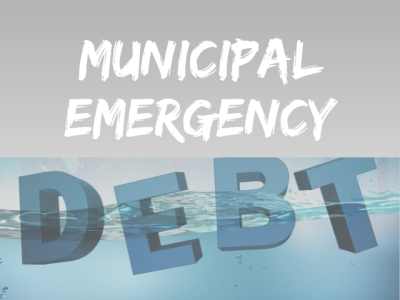WLR March 17: Crossover Week Activity on Housing, Flood Recovery, Municipal Finance, 3-Acre, and more
The warming weather tends to speed things along in the State House, and this “crossover week” was no exception. Crossover is the deadline for all policy bills to be reported out of the last committee of reference within each legislative chamber. Hereafter, lawmakers will have more time to work on “money bills” that relate to tax writing or appropriations. This issue of the Weekly Legislative Report provides updates on the House Omnibus Housing Bill (now designated H.479), the Flood Recovery bill (now designated H.397), 3-Acre reform, Reappraisal, the Budget Adjustment Act, and more.
The House Committee on General and Housing advanced its omnibus housing bill by a 10 to 1 vote. The committee bill, newly named H.479, represents almost two months of collaborative and comprehensive work on a variety of housing policies by committee members. The committee heard from VLCT several times and included many of our requests in its final version. The bill supports many of our favorite housing programs, provides new investments in infrastructure, and authorizes a new 1% local option tax for short-term rentals. It also calls for several housing-related legislative studies and seeks to reduce municipal permit appeals for housing projects.
Here is a quick rundown of what included in this 37-page Housing Bill:
- New Short-Term Rental Municipal Taxing Authority: The Committee responded to testimony from VLCT regarding the increasing resource demand on local government to regulate short-erm rentals (STRs) for fire safety, wastewater capacity, and to either promote or restrict this emerging lodging sector according to local needs. This new provision in Title 24 would allow a municipality to assess a 1% tax on STR units by a majority vote at an annual or special meeting warned for that purpose.
- Vermont Infrastructure Sustainability Fund: The bill creates a new revolving loan fund to support municipal infrastructure and appropriates $15,000,000 to the Vermont Bond Bank to provide capital to extend and increase capacity of water and sewer service and other public infrastructure in municipalities where the lack of extension or capacity is a barrier to housing development.
- Brownfield Investment: The bill calls for a Brownfields Process Improvement report, prioritizes the review of proposals for remediation at sites that contain housing, and repurposes $2,500,000 in General Funds for brownfield assessment and clean-up.
- Municipal Permit Appeal Reform: The bill includes a series of amendments under 24 V.S.A. § 4465 that tie standing for land use permit appeals to local bylaw and eliminate standing for petitioners and the so called “neighbor clause” that allowed non-abutting residents to appeal on the grounds of physical or environmental impact on the person’s interest. It will also allow local legislative bodies to adopt bylaw amendments that are required by state law (preemptions) without a hearing and compels the Environmental Division of the Vermont Supreme Court to prioritize hearing cases involving housing development.
The bill also makes more than $55 million in appropriations to various state housing programs and amends some program criteria, including:
- To standardize the grant/loan amounts for the Vermont Housing Improvement Program (VHIP) $50,000 and additional $20,000 for certain conditions and appropriates $4,000,000 to the program.
- $2,000,000 to improve mobile home park infrastructure under the Manufactured Home Improvement and Repair Program.
- $500,000 grant to the five NeighborWorks America affiliated Home Ownership Centers for the purpose of providing homebuyer education, financial literacy counseling, and foreclosure prevention programs.
- $235,000 granted to HomeShare Vermont for the purpose of funding case management positions and an intake coordinator.
- $400,000 grant to Cathedral Square to continue the Support and Services at Home (SASH) for All pilot program.
- $373,000 grant to the Vermont State Colleges System for the purpose of supporting the creation of new apprenticeships, curriculum development, employer partnerships, and faculty training in the field of heating, ventilation, and air conditioning.
- $448,500 grant to the Associated General Contractors of Vermont for the purpose of promoting and expanding their training and certification programs specific to construction and the building trades.
- $625,000.00 to the Department of Health for funding of at least three new recovery residences certified by the Vermont Alliance for Recovery Residences and to cover first month fees for individuals entering a certified recovery residence in Vermont.
- $27,000,000 to the Vermont Housing and Conservation Board to provide support and enhance capacity for the production and preservation of affordable mixed-income rental housing and homeownership units.
- $20,000,000 to the Vermont Housing Finance Agency to continue implementation of the Middle-Income Homeownership Development Program and the Rental Housing Revolving Loan Fund.
Now, we don’t pick favorites, but we do want to commend the hard work of members on the House Committee on Government Operations and Military Affairs which has passed ten bills out of committee in time for crossover. The committee’s action-packed first half of the session started with the first act of the biennium, H.78, an act related relating to the use of the Australian ballot system in local elections, and ended on Friday afternoon with a unanimous vote (11-0) to advance the Flood Bill, H.397, an act relating to miscellaneous amendments to the statutes governing emergency management and flood response.
The Flood Bill is considered a “must pass” for the session and includes three amendments proposed by VLCT, as well as a number of reforms targeting support to municipalities to enable the preparation, emergency response, and recovery from flood disasters and other all hazard events.
The three amendments successfully advocated for by VLCT and our partners at the Vermont Bond Bank would expand municipal authority to:
- Create and maintain an Unassigned Fund Balance: Establishing an Unassigned Fund Balance is a prudent practice recommended by numerous auditors and governmental finance professionals that would assist municipalities in cash flow management, stabilize the local property tax rate, improve emergency response, and significantly strengthen their financial resiliency in the case of unexpected negative economic trends.
- Borrow for Emergency Response for up to five years of debt service: In the wake of flooding and other all hazard events, municipalities cannot wait to rebuild vital town infrastructure or to restore municipal services. State law substantially limits the authority of local legislative bodies to acquire funding for emergency response as they can only take on debt for up to one year without a town vote, while FEMA public assistance reimbursement can take much longer.
- Establish level debt service: Current statute requires municipal loans to be level principal, meaning that debt payments start high and decrease yearly as the cost of interest goes down. Municipalities should have the option to structure level debt by amortizing the debt to allow for consistent repayment amounts. This would help stabilize local property tax bills and is more within the national norms of government borrowing.
The bill also carries forward a proposal by Governor Scott, which VLCT supports, to appropriate up to $1 million from the current PILOT Special Fund surplus to municipalities that have lost grand list revenue from voluntary flood buyouts. This program would replace the lost municipal portion of property taxes in full for five years and would then step down reimbursements by half in five-year increments, giving communities time to undertake new development projects and restore the lost grand list value. VLCT supports this provision, considering the number of buyout-impacted communities that are also LOT contributors and/or eligible for PILOT.
VLCT thanks Chair Matt Birong and Vice Chair Lisa Hango for their persistence and collaboration on a number of key priorities for local government this session.
The Flood Bill will now head to the House Ways and Means Committee, where we expect further amendments, including the addition of VLCT’s proposed change to the LOT withholding formula from 70/30 to 80/20.
Now that crossover is behind us, the legislature’s focus is all about the money. Committees of jurisdiction have more time to work out the details related to tax writing and appropriations, so in the weeks ahead there will be much debate on how to pay for the various policies and programs proposed in other legislation.
Back in January, VLCT presented our 2025 Legislative Priorities to members of the Rural Caucus and asked for their support on three key initiatives: transportation funding, infrastructure for housing, and LOT/PILOT surplus reform. Last week the Rural Caucus decided what requests to include in their annual letter to the Appropriations Committees and chose to support VLCT’s request to level fund town highway and bridge and structure appropriations to FY25 levels.
The House Committee on Environment passed H.481 on a 9-2 vote Friday afternoon. Some of the language in this bill originated in Senator Chittenden’s S.24, which we discussed in past Weekly Legislative Reports.
This version by the House Environment Committee proposes to amend requirements related to the permitting of stormwater systems in the state. The bill would:
- Extend the deadline by which owners of impervious surfaces subject to 3-Acre permits located within the Lake Champlain and Lake Memphremagog watershed must complete permitting to October 1, 2028, and for all other watersheds of the state by October 1, 2038.
- Allow municipalities that assume full legal responsibility for a stormwater system to assess municipal impact fees on users of the stormwater system.
- Repeal the sunset of the clean water surcharge on the property transfer tax.
- Create the Study Committee on the Creation of Regional Stormwater Utility Districts to review the feasibility and benefit of creating regional stormwater utility districts to facilitate implementation and compliance with the water quality laws of the state.
Taken all together, the provisions in this bill are a step in the right direction toward a more cogent plan for the state to treat 3-Acre sites. However, VLCT continues to propose further reforms of the 3-Acre stormwater permitting rule to consider cost, feasibility, and the effectiveness of phosphorous reduction. As this bill moves toward the Senate, we will call for further amendment to:
- allow cost to be a factor in determining the feasibility and approval of engineered treatments,
- allow municipalities to separate publicly owned facilities (such as town roads) from private parcels under the permit,
- remove dispersed residential neighborhoods without common ownership from 3-Acre regulation, and
- only require treatment at the time of redevelopment.
The House Ways and Means Committee has released another substantially revised version of their Reappraisal committee bill following a slate of testimonies earlier this month by VLCT and VALA members.
The legislative intent of the new reappraisal proposal is to create a regional system for mass reappraisal on a six-year timeline to ensure that property values on municipal grand lists are kept up to date and accurate, that property data collection is consistent and standardized across the State, and that property valuation is conducted by professional staff – while keeping the authority and responsibility to perform regular grand list maintenance with local listers.
The proposal creates 12 regional assessment districts that would be overseen by an employee of the Department of Taxes Division of Property Valuation and Review (PVR) who may contract for and oversee reappraisals conducted by outside firms, as well as creates regional boards of civil authority to hear appeals. This most recent draft also eliminates the annual equalization study, raises the per parcel fee for costs related to grand list maintenance to $9.50, eliminates the initial proposal to “claw back” these funds for the transition to regional districts, and eliminates the threat of withholding state funds for noncompliance currently in law.
The new draft also introduces transition language removing the requirement to conduct ordered reappraisals (effective on passage), ending new reappraisals orders beginning on January 1, 2027, and creating a stakeholder group to be convened by PVR to “advise on the development of guidelines, procedures, and rules to effectuate the requirements of this act relating to property valuation and reappraisals”.
On Wednesday of last week, the House passed the conferenced version of the annual Budget Adjustment Act (BAA), which was swiftly vetoed by Governor Phil Scott on Friday. In our March 3 Weekly Legislative Report we summarized the last-minute BAA showdown over a proposal by the Administration to strike $1.8 million for an extension of the current General Assistance (GA) cold weather shelter program and instead offer up to $2.1 million in block grants to municipalities to manage the wind down of the motel program.
In his veto message, Governor Scott made clear that the continuation of the motel program until June 30 is a sticking point, and he expressed mounting concerns related to federal funding and potential future cuts to “critical programs”.
Now, lawmakers can either attempt a veto override of the current BAA proposal or work toward a negotiated agreement with the Administration. Republican lawmakers have previously expressed support for the governor’s position, making an override unlikely. VLCT will continue to watch for a negotiated package to emerge and maintains that the management of the GA program specifically, and the delivery of human services generally, is a responsibility of state government – not local government.
Committee bills are advancing, and last-minute amendments are common in the last half of the session. VLCT is monitoring and tracking over 115 bills, and your advocacy team is testifying on the bills most important to municipalities each week. In the weeks ahead there will be many more opportunities for you to help Josh and Samantha in VLCT’s advocacy work. Remember to register and attend our bi-weekly Advocacy Chats, which are held via Zoom every other Monday at 1 PM.
- You can find (and share) this legislative report and future reports and alerts on our main Advocacy webpage.
- To support VLCT’s advocacy work; participate in policy development, testimony, and legislative actions; or just learn more, reach out to Josh and Samantha by email at jhanford@vlct.org and ssheehan@vlct.org.



